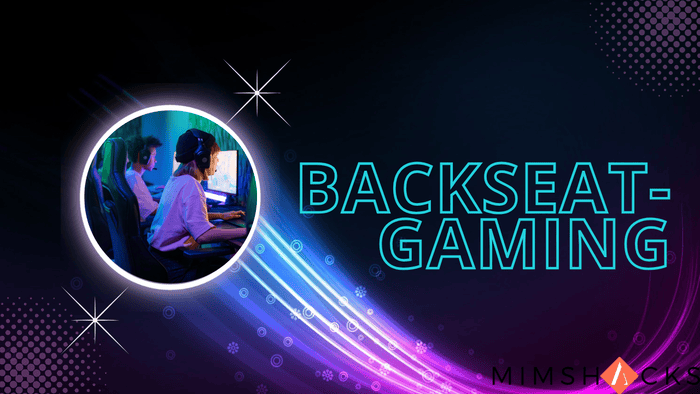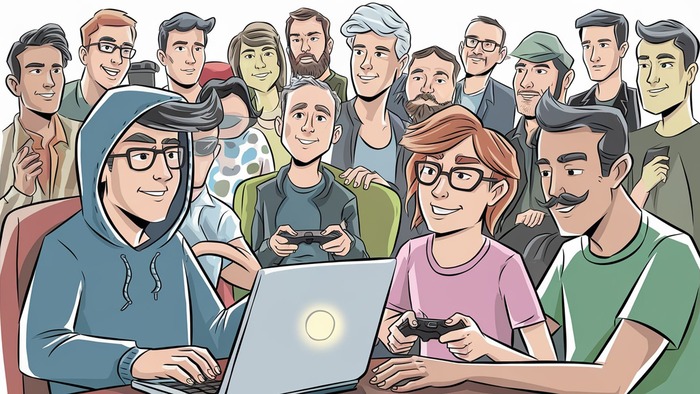What Does Backseat Mean in Gaming?
Backseat gaming happens when someone not playing a game gives the player unwanted advice, comments, or directions. It is similar to a backseat driver but in gaming.
Have someone ever stood behind you and told you what to do while you play? That is backseat gaming. It can be frustrating or sometimes helpful.

The Meaning of Backseat Gaming
Backseat gaming means watching another person play a video game and telling them how to play without being asked. Instead of directing a car, the person directs the game.
Some people give helpful tips to beginners, while others annoy experienced players by trying to control every move.
Where the Term Comes From
“backseat gaming” comes from “backseat driving,” a term used since cars first became popular.
A backseat advice to the person driving, even when it’s not wanted. A backseat gamer does the same thing but for someone playing a game.
The phrase became more common in the late 1990s and early 2000s when multiplayer games and LAN parties grew popular.
It spread even more in the 2010s with streaming platforms like Twitch, where viewers could comment on live gameplay.

How to Use “Backseat Gaming”
Want to use “backseat gaming” correctly? Here are some examples:
- Describing behavior: “Stop backseat gaming! Let me play my way!”
- Setting rules for streams: “No backseat gaming in chat unless I ask for help.”
- Admitting to it: “Sorry for backseat gaming. I got too excited.”
- Asking for help: “I’m stuck. A little backseat gaming would help.”
- Regarding streamers: “Backseat gaming can be frustrating for some streamers.”
Tip: Context matters. Backseat gaming isn’t always bad. It can help when a player is struggling or learning.
Related Terms

When talking about backseat gaming, you may hear these words too:
- Stream sniping: Watching a live stream to gain an unfair edge in a game.
- Backseating: A short way to say backseat gaming.
- Kibitzing: A Yiddish word for unwanted advice, often in chess and gaming.
- Armchair gaming: Criticizing game strategies or design from a distance.
- Ghosting: Giving active players secret info after being eliminated.
- Coaching: Unlike backseat gaming, coaching is usually welcome and familiar in competitions.
- Spoilers: Revealing story details or puzzle solutions without permission.
Now you know all about backseat gaming! Whether you give advice or just try to play, remember that games should be fun.
Sometimes, backseat gaming adds to the experience, but knowing when to stop is key.
If you’ll excuse me, I must tell my friend they’re playing wrong. Just kidding… or am I? Game on!





